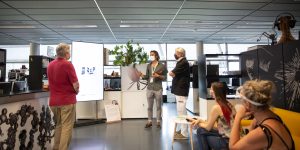
Projects
Projekte
-
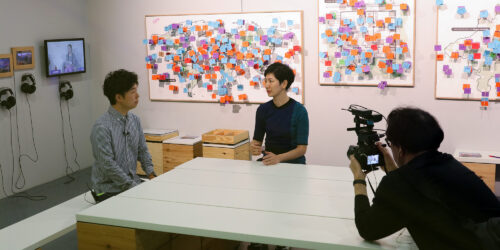
Art Thinking Initiative
Ars Electronica x Hakuhodo
Die Art Thinking Initiative (ATI) ist ein gemeinsames Beratungsprogramm des Ars Electronica Futurelab und Hakuhodo mit dem Ziel, die Methode des Art Thinking in das Management sowie in die Forschung und Entwicklung von Unternehmen, wissenschaftlichen Einrichtungen und öffentlichen Organisationen einzubringen. Hakuhodo ist ein führendes Unternehmen für Kommunikationsdesign und Marketinglösungen in Japan, dessen Kernphilosophie auf „People…
-
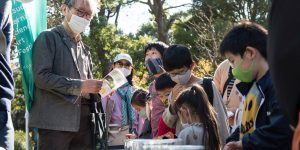
Garden of Creativity
Matsudo International Science Art Festival 2020
From November 21st to 22nd 2020, the Ars Electronica Futurelab contributed to the International Science Art Festival in Matsudo, Japan, for the third time – on the theme of “Garden of Creativity”.
-

Artistic Journalism 2020
Keio University SFC Online Course
Ars Electronica Futurelab director Hideaki Ogawa taught an online course entitled “Artistic Journalism” at Keio University SFC (Shonan Fujisawa Campus). This experimental series of classes discusses artistic journalism through online lectures, online guided tours and dialogues with the Ars Electronica Center.
-
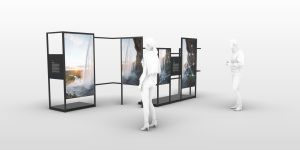
Cascade
8K Future Projects
Since 2018, NHK and Ars Electronica Futurelab have conducted joint research on the new possibilities of 8K technology and its social and cultural impact. Under the theme of Beyond the Frame – 8K Future Projects, we have created a prototype for social togetherness in the 8K Platz project, and a new scale of broadcast content…
-

Spotless
An Artifact-Bound, Augmented-Reality Powered Social Interface
Spotless’s goal is to empower users to utilize arbitrary objects as communication channels. The basic concept is to connect objects or “artifacts” by the means of their visual equality.
-
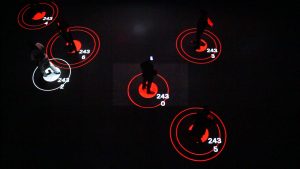
Deepandemia / DeepChanges
With immersive VR simulations in the VR environment of Deep Space 8K, the Ars Electronica Futurelab aims to vividly convey scientific knowledge and inspire reflection and discussion: Deepandemia visualizes the COVID-19 infection chain in simulated everyday environments to virtually test how individual behavior can affect the worldwide pandemic.
-
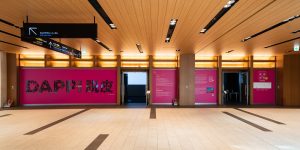
School of the Future Festival 2020: Dappi
The School of the Future Festival 2020—a cooperation between Ars Electronica and TOKYO MIDTOWN—took place from February 20th to February 24th 2020 in Tokyo, Japan.
-
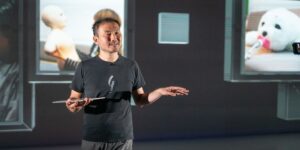
Artistic Journalism
Künstlerischer Journalismus ist die Schaffung eines sozialen Dialogs durch künstlerischen Ausdruck, Forschung, Erkundung und Aktion. Um Studierende für diese Methode zu begeistern, unterrichtete Hideaki Ogawa, Co-Direktor des Ars Electronica Futurelab, an der Keio Universität SFC (Shonan Fujisawa Campus) Online-Kurse zum Thema „Artistic Journalism“.
-
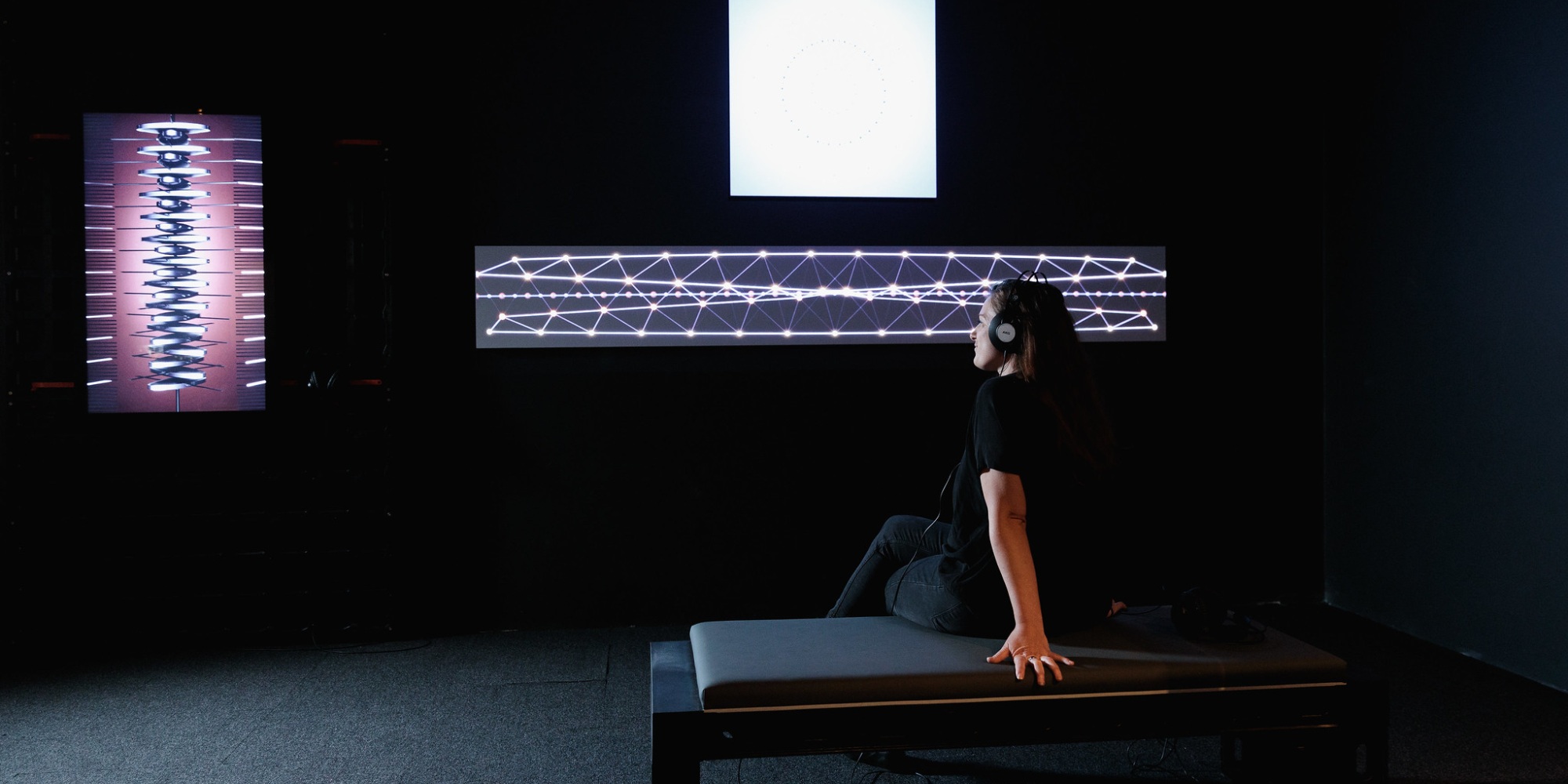
AI x Music
Exhibition at the Ars Electronica Center
Das Potenzial von künstlicher Intelligenz in musikalischen Anwendungen wurde in den letzten Jahren durch verschiedene Projekte unter Beweis gestellt. Moderne KI kann sicherlich als ein weiterer Schritt zur Erweiterung der musikalischen Möglichkeiten durch den Einsatz von Technologie gesehen werden.
-

CoBot Studio
Wenn Menschen und Roboter immer enger zusammenarbeiten, ist ihr gemeinsamer Erfolg an bestimmte Voraussetzungen geknüpft: Wie schafft man sichere Arbeitsumgebungen? Wie kann man die Akzeptanz von Robotern im Arbeitsalltag erhöhen? Und wie kommuniziert man mit einem Kollegen, der nur aus einem Greifarm besteht?
-
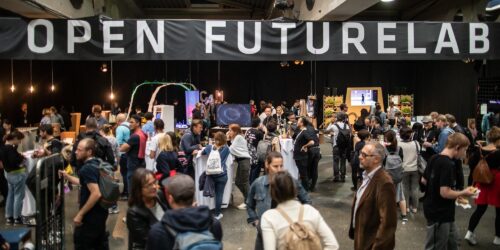
Open Futurelab 2019
Das Festivalgelände der POSTCITY in Linz wurde bis 2019 als Bühne für Open Futurelab genutzt. Der gemeinsam mit der japanischen Rundfunkanstalt NHK entwickelte Media Platz war der Prototyp eines offenen Medienplatzes aus Karton und hochauflösenden Bildschirmen, der als Forum für öffentliche Debatten diente. Dort fanden verschiedene Podiumsdiskussionen statt, u. a. zum Thema „Welche Rolle sollte…
